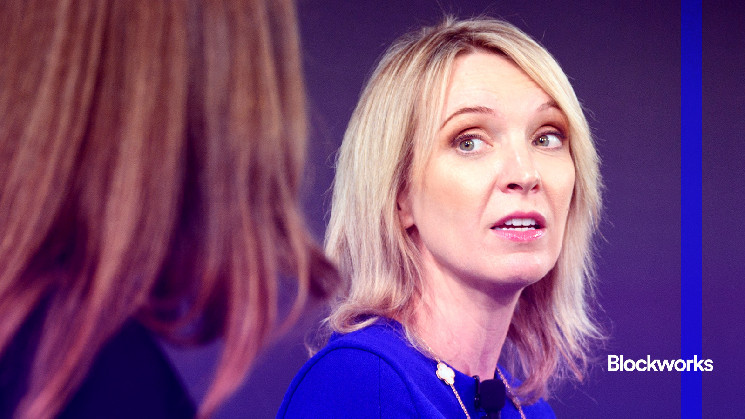The Blockchain Association is seeking more information about the Federal Reserve’s latest cease-and-desist order against United Texas Bank as part of a broader investigation into the US government’s so-called Operation Choke Point 2.0.
An examination by the central bank identified “significant deficiencies” around risk management and compliance with anti-money laundering laws, including the Bank Secrecy Act, according to a Wednesday filing.
These alleged shortcomings were related to “foreign correspondent banking and virtual currency customers,” the Federal Reserve noted.
United Texas Bank did not immediately return a request for comment.
Read more: Operation Choke Point 2.0: Is the US coming for crypto?
“It’s no secret there is a coordinated attempt to choke off the digital asset industry’s access to the traditional banking system,” Blockchain Association policy counsel Laura Sanders told Blockworks. “We are investigating yesterday’s troubling news, which unfortunately may be more of the same: deliberate targeting of banks that serve digital asset customers.”
The Federal Reserve’s order against United Texas Bank gained the attention of Custodia Bank founder Caitlin Long, who wrote in an X post: “Another crypto bank, another enforcement action.”
The Federal Reserve Board last year denied Custodia’s application to become a member of the Federal Reserve System — noting the bank’s crypto focus “presented significant safety and soundness risks.”
“Regulators have such broad mandates on monitoring and compliance that they can basically selectively enforce against anyone they want,” former VanEck crypto strategy lead Gabor Gurbacs said in response to Long’s post. “It seems wrong.”
The Federal Reserve Bank of Philadelphia claimed the same type of AML-related “significant deficiencies” at Customers Bank and its parent company last month. It noted Customers’ services to “digital asset” clients in the action, including enabling them to make tokenized payments over a distributed ledger technology system to other clients at the bank.
In response, Customers Bank named Allen Love as its new chief compliance and AML officer to work on “strengthening Bank Secrecy Act and Anti-Money Laundering protocols for the company’s digital asset business.”
The order against United Texas Bank came the same day the Commodity Futures Trading Commission alleged that Uniswap “illegally offered leveraged or margined retail commodity transactions in digital assets via a decentralized digital asset trading protocol.”
Uniswap is set to pay $175,000 to settle the allegations. CFTC Commissioner Summer Mersinger said in a dissenting opinion that the Uniswap case “has all the hallmarks of what we have come to know as regulation through enforcement.”
Read more: CFTC Commissioners dissent on Uniswap settlement
“Wielding the hammer of enforcement against these DeFi protocols may result in some short-term ‘wins,’” Mersinger added. “But in the long-term…it will only create problems.”
Looking elsewhere: The SEC charged the defunct crypto hedge fund Galois Capital with failing to properly safeguard client assets. Galois agreed to pay a settlement amount of $225,000 — to be distributed to the fund’s “harmed investors.”
Blockchain Association executive director Kristin Smith took to X to call the Galois charges more of the same from the agency: “Taxpayer-funded ‘gotcha’ lawfare aimed at driving the US crypto industry away for good.”
Industry watchers are waiting to see whether a new presidential administration might offer regulatory clarity to crypto businesses.
While Donald Trump has made several promises as part of a bid to be a pro-crypto president, Democratic nominee Kamala Harris has so far been less vocal about the topic.
Read more: Ex-SEC counsel: More crypto remarks likely coming from Trump, Harris
“The digital asset industry has created tens of thousands of American jobs, and these lawful businesses need bank accounts to pay their employees, vendors and taxes,” Sanders said. “Blockchain Association will continue its investigation into Operation Choke Point 2.0 and bring all findings to light.”
A modified version of this article first appeared in the daily On the Margin newsletter. Subscribe here so you don’t miss tomorrow’s edition.
 blockworks.co
blockworks.co
